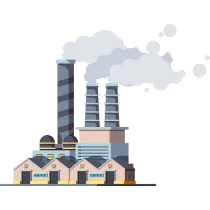Unlocking Growth: Invest in Turkey's Flourishing Industrial Cities
Foreword
Turkey, a country strategically located at the crossroads of Europe and Asia, boasts a dynamic and growing industrial sector. The nation’s industrial cities serve as the backbone of its economy, driving manufacturing, production, and export activities. These cities are characterized by a strong presence of factories, industrial zones, and a skilled workforce. From automotive manufacturing in Bursa to textile production in Gaziantep, each industrial city specializes in distinct sectors, contributing to Turkey’s overall industrial landscape.
Istanbul, the country’s largest city, is also a major industrial hub, housing numerous factories and industries. Other prominent industrial cities in Turkey include Kocaeli, known for its automotive and petrochemical industries, and Izmir, a center for textiles and food processing. These cities attract both domestic and foreign investment, fostering economic growth and creating job opportunities.
The Turkish government actively supports industrial development through various initiatives and incentives. It aims to enhance the competitiveness of Turkish industries, promote innovation, and encourage sustainable practices. The industrial cities in Turkey play a crucial role in achieving these goals, contributing to the country’s overall economic progress and prosperity.
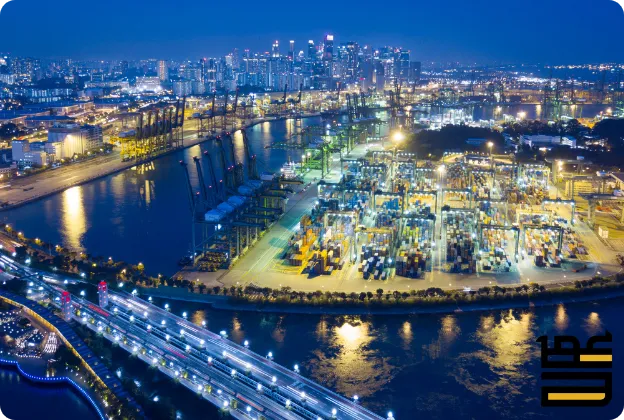
Everything about industrial cities in Turkey
Where is Istanbul Industrial Zone?
Istanbul Industrial Zone is one of the largest industrial cities in Turkey. It was established in 1970 and covers an area of approximately 3,000 hectares. The city is located in the western part of Istanbul and is close to the Istanbul Atatürk Airport.
Istanbul Industrial Zone has played a significant role in the country’s manufacturing industry, as it houses several factories and warehouses. Some of the industrial units in Istanbul Industrial Zone include textile factories, food processing plants, and chemical factories.
The city has several welfare amenities for its workers, including schools, hospitals, and recreational facilities. Istanbul Industrial Zone is easily accessible by road and air, as it is located near one of Istanbul’s largest airports.
The industrial cities in Turkey are characterized by their modern infrastructure, skilled workforce, and strategic location, making them attractive investment destinations for both domestic and international companies. Siemens in Saudi Arabia has been a key player in the Kingdom’s industrial development, providing cutting-edge technology and solutions across various sectors, including energy, healthcare, and transportation.
With their strategic locations and well-established infrastructure, industrial cities in Turkey serve as magnets for both domestic and foreign investors. Siemens in Dubai, a prominent player in the global industrial sector, has made significant inroads into the Turkish market, leveraging its expertise in areas like energy, transportation, and healthcare. The presence of Siemens in Dubai has been instrumental in driving innovation and technological advancement within Turkey’s industrial cities.
Kocaeli Industrial Zone
Kocaeli Industrial Zone is another major industrial cities in Turkey. It was established in 1976 and covers an area of approximately 4,200 hectares. The city is located in the northwestern part of Turkey and is close to the Istanbul Sabiha Gökçen International Airport.
Kocaeli Industrial Zone plays a significant role in the country’s manufacturing industry, as it houses several factories and warehouses. Some of the industries in Kocaeli Industrial Zone include automotive production, chemical production, and metalworking.
The city has several welfare amenities for its workers, including schools, hospitals, and recreational facilities. Kocaeli Industrial Zone is easily accessible by road and air, as it is located near one of Turkey’s largest airports.
As another example, Honeywell in Saudi Arabia operates as a key player in the kingdom’s industrial landscape, offering a wide range of solutions and technologies across various sectors. With its commitment to innovation and excellence, Honeywell in Saudi Arabia contributes to the kingdom’s vision of economic diversification and industrial advancement.
As a global leader in technology and manufacturing, Honeywell’s presence in Dubai signifies the region’s growing significance as a business hub. Honeywell in Dubai leverages the city’s strategic location, infrastructure, and business-friendly environment to cater to diverse markets across the Middle East and beyond.
Through its diverse portfolio of products and services, Honeywell in Dubai contributes to various sectors including aerospace, building technologies, and industrial automation, enhancing efficiency and sustainability in the region.
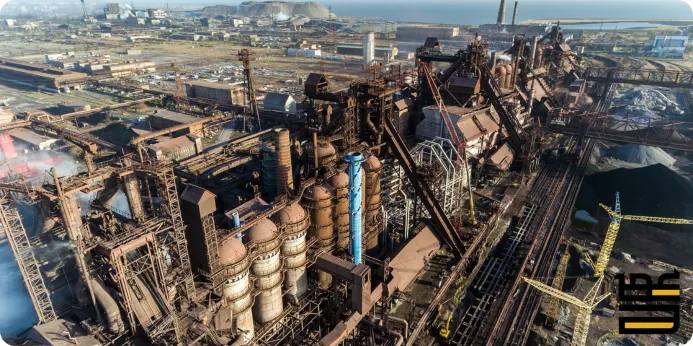
Izmir Industrial Zone
Izmir Industrial Zone is located in the western part of Turkey and covers an area of approximately 2,000 hectares. The city was established in 1970 and has played a significant role in the country’s manufacturing industry. Some of the industries in Izmir Industrial Zone include food processing, textile production, and chemical production.
The city has several welfare amenities for its workers, including schools, hospitals, and recreational facilities. Izmir Industrial Zone is easily accessible by road, as it is located near one of Turkey’s major highways. The presence of well-established industrial zones in cities like Kocaeli and Gaziantep has fostered innovation and entrepreneurship.
As another example, ABB in Dubai, a prominent player in the global industrial automation sector, has also made significant contributions to Turkey’s industrial development through its advanced technologies and solutions. The partnership between Turkish industrial firms and ABB in Dubai has resulted in the implementation of cutting-edge automation systems, enhancing efficiency and productivity.
Bursa Industrial Zone
Bursa Industrial Zone is located in the northwestern part of Turkey and covers an area of approximately 1,500 hectares. The city was established in 1977 and has played a significant role in the country’s manufacturing industry. Some of the industries in Bursa Industrial Zone include automotive production, textile production, and food processing.
The city has several welfare amenities for its workers, including schools, hospitals, and recreational facilities. Bursa Industrial Zone is easily accessible by road, as it is located near one of Turkey’s major highways.
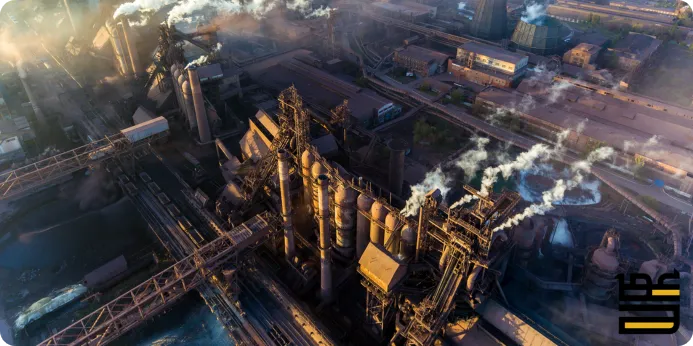
What is the future outlook for Turkey's industrial sector?
Turkey’s industrial sector stands at a crossroads, with both challenges and opportunities shaping its future outlook.
- Strong Foundation: Turkey boasts a diversified industrial base, with strengths in manufacturing, automotive, textiles, and construction. This provides a solid platform for future growth.
- Strategic Location: Turkey’s geographic position at the crossroads of Europe and Asia offers access to large markets and potential for further integration into global supply chains.
- Young and Dynamic Workforce: Turkey’s population is relatively young, offering a large pool of potential workers and a growing consumer market.
- Government Support: The Turkish government has expressed commitment to industrial development, with various incentives and programs in place to attract investment and promote innovation.
- Potential for Renewable Energy: Turkey has significant renewable energy potential, particularly in solar and wind, which could drive sustainable industrial growth and reduce dependence on fossil fuels.
What are some of the challenges facing industrial cities in Turkey?
Industrial cities in Turkey are currently grappling with a number of challenges that affect their economic growth, environmental sustainability, and social well-being. Some of the most pressing issues include:
Economic Shifts and Competition: As Turkey’s economy transitions towards a more service-oriented model, traditional industrial sectors are facing increased pressure to modernize and innovate to stay competitive. Additionally, the rise of low-cost manufacturing hubs in other regions of the world poses a challenge to Turkish industrial cities, forcing them to find ways to differentiate themselves and attract investment.
Infrastructure and Urban Planning Issues: Many industrial cities in Turkey suffer from outdated infrastructure and inadequate urban planning, leading to traffic congestion, pollution, and inefficient use of land and resources. This hinders their ability to attract new businesses and investments and can negatively impact the quality of life for residents.
Environmental Concerns: The rapid industrial development in Turkey has resulted in significant environmental challenges, including air and water pollution, waste management issues, and the depletion of natural resources. These problems not only harm the environment but also pose health risks to the population and can damage the reputation of industrial cities.
Skill Gaps and Labor Market Challenges: As industries evolve and adopt new technologies, there is a growing need for a skilled workforce capable of adapting to these changes. However, many industrial cities in Turkey face challenges in providing adequate training and education opportunities, leading to skill gaps and difficulties in matching job seekers with available positions.
Social and Demographic Issues: The rapid urbanization and industrialization in Turkey have also resulted in social and demographic challenges, including income inequality, social exclusion, and pressure on housing and public services. These issues can lead to social unrest and can create an unattractive environment for businesses and investments.
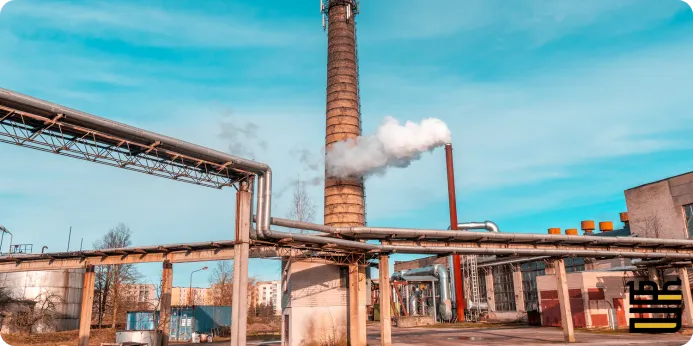
In conclusion, these “industrial cities in Turkey” have played a significant role in Turkey’s economic development and growth. They have provided jobs for thousands of people and have helped to diversify the country’s economy. With continued investment and development, these cities have the potential to become even more significant players in the region’s industrial landscape.

